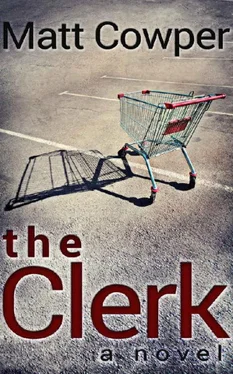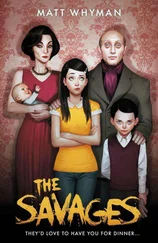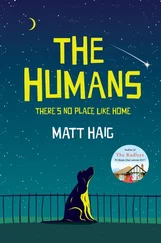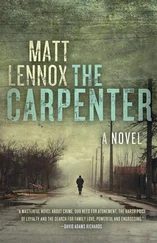Of course, he’d broken his promise, and now Oxendine’s Grocery was abuzz with scandal.
Thomas watched Cynthia as she sliced some honey ham for a customer who had wandered down the beer aisle while he waited. It looked like she’d overindulged over the holidays: her thickness was once again dangerously close to becoming fatness. But, as she’d told Thomas, her New Year’s Resolution was to get in shape, so she would be slim and trim in no time! Thomas didn’t mention that, as far as he could recall, that had been her resolution the past two years.
He briefly thought of Allison, since she’d had the same futile resolution. He wondered if he’d ever see her again. He hoped not.
“Kudos to Noah, though,” Thomas said sincerely. “He kept at it. Didn’t quit.”
“But do you think they actually hooked up, you know, consensually, or do you think he sort of took advantage of her?”
“Took advantage of her” was the term Carly was using. She’d stopped short of using the word “rape” to describe what had happened to her. She feared the word as much as Noah did; it meant lawyers, chubby policeman, tearful depositions, the lewd glare of the community. No, it was better to withhold the word, but still use its possible deployment as a cudgel to make Noah behave.
And indeed, Noah had backpedaled, claiming that their encounter “wasn’t that hot n’ heavy. Was just, ya know, a lil sumthin’ sumthin’.” Few believed this, but since Noah was no longer giving out salacious details, the employees at Oxendine’s had to satisfy their voyeurism somehow, so they came up with their own. Some of the scenarios were wildly unlikely, even impossible, so that, actually, sticking to the relatively prosaic truth would’ve been beneficial to both Noah and Carly.
“No, I don’t think Noah did anything wrong,” Thomas replied now. “Carly knew what she was doing — sort of.”
“But she was drunk.”
Thomas sighed. He’d already measured Carly’s blood-alcohol level with three different people today, and he didn’t want to do it with a fourth.
“Yeah, well, like I said: alcohol makes things happen.”
“That doesn’t mean he has a right to throw her down on a sand dune and have his way with her.”
Thomas sighed again. He should’ve known what Cynthia’s opinion of the Beach Romp (as Vernon called it) would be. Verdicts had been divided right down the gender line: Thomas, Eldridge, and Vernon thought it was just a bit of harmless teenage drama, while Peggy and now Cynthia thought that Noah was a lecherous villain. Thomas hadn’t talked to anyone else about the Romp, but he assumed opinions would remain predictable based on gender.
“We’ll just have to agree to disagree,” Thomas said diplomatically. His argument with his sister had happened a few days ago, and Thomas didn’t want to trade barbs with yet another woman regarding the dos and don’ts of relationships and sex.
“Fine,” Cynthia spat. Thomas arched an eyebrow. She was now slicing mesquite turkey breast, which she did with angry speed. Thomas didn’t want to consider which body part of his or Noah’s she wished she could jam into the slicer’s sharp, whirling blade.
“So, have you heard anything from Orianna?” he asked with an abundance of nonchalance. He didn’t know if Cynthia was aware of his altercation with Orianna at the Christmas Party. He didn’t think so, since Cynthia hadn’t yet mentioned it, and in fact hadn’t had much to say about her friend at all.
“No, I haven’t, actually,” she said thoughtfully, and perhaps unconsciously slowing her meat-slicing. “It’s kind of weird. Since she quit, she doesn’t really want to hang out with me. I mean, we never hung out that much, but now she barely answers my texts.”
“Interesting,” Thomas said vaguely.
“Yeah, I guess. It ticks me off, though. I don’t know if I’ve done something wrong, or…”
“No, it’s not you. Trust me.”
“How can you be sure? Maybe I upset her somehow.”
“You upset her by working here,” Thomas blurted out before he could lasso his words. He cringed, waiting for Cynthia to question him thoroughly about what he meant.
But to his surprise, Cynthia had already considered this: “Yeah, maybe. You know, when she first quit she went on and on about being free and traveling and all this stuff. I thought that sounded great, but she looked at me like I didn’t get it, and then she said something about how Oxendine’s is like a prison, with wardens and everything. Maybe that means I’m a dumb prisoner for working here — or maybe I’m a warden.”
“What a bitch,” Thomas said half-heartedly.
“Yeah, maybe,” Cynthia said just as half-heartedly. “I think she’s just going through a rough patch.”
“Aren’t we all?” Thomas said. “Speaking of: what about you? Still having trouble with your roommates?”
If Cynthia had still been slicing, she would’ve fairly tortured whatever meat needed to be cut. Now, however, she was weighing and bagging the turkey, but that didn’t mean she couldn’t slam the filled plastic bag onto the scale and yank out the price label once it printed.
“Yes, I’m having trouble,” she said, as if it were obvious to all the world. “I’m ready to move out, but it’s not that easy. I could live on my own, but that would cost a lot more money. Or I could try to find new roommates, but they could end up being just as bad as the ones I’ve got now.”
“Maybe you could move back home. Temporarily, I mean.”
“Never.” She stared at Thomas as if he’d just advised her to sell her soul. Hearing and seeing such conviction disquieted him. If wholesome Cynthia was finally cracking under the pressure, what hope did anyone else in the world have?
“Well, I’m sorry to hear about your troubles,” Thomas said lamely.
“Yeah, you were sorry the last time we talked about it.” She threw the bags of meat in the deli cooler and started to tenaciously clean the slicer.
Thomas was tired of women getting the last word, but no good could come by arguing with Cynthia, especially since he didn’t know what he should argue about. He stared at her for a few seconds, then walked away, his destination uncertain.
He checked his watch: two hours until his shift ended. Not enough time to prepare for the big meeting that was taking place this evening, but then again, two thousand years wouldn’t be enough time.
The four people sat down at a window booth, then waited until the hostess was walking away before beginning their conversation. The staff of Finn Finnegan’s looked at them critically: the older man looked like he had a stick up his ass, but the woman who appeared to be his wife seemed nice and outgoing. The two middle-aged men were also opposites: one was in creaseless black slacks, gleaming leather shoes, and an Oxford shirt, while the other had on a t-shirt and jeans. An out-of-town family, seemed to be, here on a winter jaunt. They’d probably leave a small tip and complain about how their entrees were cooked.
“This brings back memories!” Jean Copeland tweeped. “How many times have we eaten here over the years?”
“Many,” Frank Copeland said sourly. Here he was, back in this damn restaurant with its maritime kitsch and yellowed, framed newspaper articles dotting the walls. As if anyone cared that Surf ’N Surf: The Coastal North Carolina Restaurant Review had given Finn Finnegan’s a glowing review twenty years ago!
Frank Copeland hadn’t wanted to return to Morehead City, but he knew it was necessary: Emily needed to be Saved. Their mission was simple: find his daughter, and return her to Raleigh. She couldn’t stand against the combined might of the family; they’d be able to set her straight. (That Emily ruled over everyone on every occasion the family met was a contradiction that Frank ignored.) This damn fool boy she’d run off with would be dealt with, too — physically, if need be.
Читать дальше












